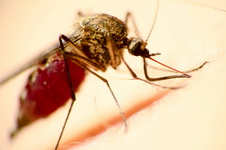
GM Mosquitoes to Fight Zika Virus in Brazil
January 27, 2016| |
 Intrexon Corporation, through its subsidiary Oxitec, and the Piracicaba City Hall have agreed to extend the ‘Friendly Aedes aegypti Project' in Piracicaba, Brazil following strong results for controlling the Ae. aegypti mosquito population, the primary vector for dengue, chikungunya, and Zika virus outbreaks around the world. Zika, a rapidly spreading virus, emerged in Brazil in 2015 and is linked to a sudden increase in birth defects (microcephaly). The number of children born with microcephaly in Brazil has now risen to more than 3,500.
Intrexon Corporation, through its subsidiary Oxitec, and the Piracicaba City Hall have agreed to extend the ‘Friendly Aedes aegypti Project' in Piracicaba, Brazil following strong results for controlling the Ae. aegypti mosquito population, the primary vector for dengue, chikungunya, and Zika virus outbreaks around the world. Zika, a rapidly spreading virus, emerged in Brazil in 2015 and is linked to a sudden increase in birth defects (microcephaly). The number of children born with microcephaly in Brazil has now risen to more than 3,500.
For this program, Oxitec initiated a new mosquito production facility in Piracicaba that will have the capacity to protect over 300,000 people. Piracicaba's CECAP/Eldorado district became the world's first municipality to partner directly with Oxitec after Brazil's National Biosafety Committee (CTNBio) approved releases throughout the country. In April 2015, self-limiting mosquitoes were released, and by the end of the calendar year, a reduction in wild mosquito larvae by 82% was recorded. Like many invasive insect species, Ae. aegypti's territory is expanding as are the diseases it spreads, including dengue, chikungunya, and Zika virus, which collectively impact over 100 countries and approximately 400 million people globally each year. Today, Brazil has the highest reported incidence of dengue in the Western Hemisphere, and with both chikungunya and Zika virus having entered the country in 2014 and 2015 respectively, the Ae. aegypti mosquito has become an increasing health risk.
For more information, read the Oxitec news release.
| |
Biotech Updates is a weekly newsletter of ISAAA, a not-for-profit organization. It is distributed for free to over 22,000 subscribers worldwide to inform them about the key developments in biosciences, especially in biotechnology. Your support will help us in our mission to feed the world with knowledge. You can help by donating as little as $10.
-
See more articles:
-
News from Around the World
- Globe Artichoke Genome Sequenced
- Uganda's First Field Observation of GM Potato Shows Extreme Resistance to Late Blight
- Genomes of Grafted Plants Communicate with Each Other
- Scientists Discover Pathways for Pest Resistance
- FSANZ Invites Comments on GM Corn Line Application
- GM Camelina Could Replace Fish Oil as Primary Source of Fatty Acids
- Plant-based Enzyme for the EU Industry
-
Research Highlights
- TaRLK Genes Confer Powdery Mildew Resistance in Common Wheat
- Downregulation of OsSPX1 Causes Semi-Male Sterility and Grain Yield Reduction in Rice
- Overexpression of Yeast Transcription Factor Improves Root Architecture in Black Locust
-
Beyond Crop Biotech
- Rice as a Platform for the Production of Microbicide Against HIV
- GM Mosquitoes to Fight Zika Virus in Brazil
-
From the BICs
- Students and Lecturers in Indonesia Join National Biotech Seminar 2016
-
Announcements
- FAO International Symposium on Agricultural Biotechnologies
- 2nd Microbiome R&D and Business Collaboration Congress: Asia
-
Read the latest: - Biotech Updates (February 4, 2026)
- Gene Editing Supplement (January 28, 2026)
- Gene Drive Supplement (February 22, 2023)
-
Subscribe to BU: - Share
- Tweet
